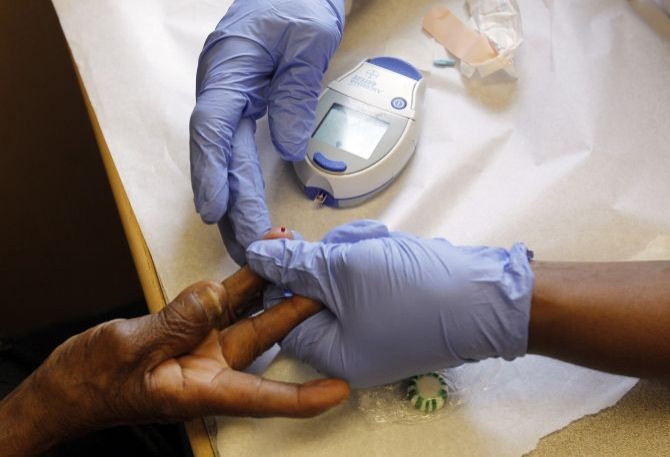Insulin Production May Be Saved for Type 2 Diabetes with Early, Intensive Treatment

A person's insulin production can be preserved by treating type 2 diabetes early and intensively, says a new study.
"We can potentially change the course of this prevalent disease, which would represent a breakthrough. The intensive treatment regimen we propose is different from the stepwise approach recommended in standard guidelines," said Dr. Ildiko Lingvay, assistant professor of internal medicine at UT Southwestern and author of the study.
According to the researchers, beta-cell function can be preserved for up to 3.5 years with insulin plus metformin or triple oral therapy after an initial 3-month insulin based treatment period.
Type 2 diabetes accounts for nearly 90 to 95 % of diabetes cases. This type of diabetes is generally associated with a person's lifestyle like poor physical activity, obesity, unhealthy diet and hereditary disorders. Making lifestyle changes can control type 2 diabetes and in some cases delay or even prevent it. Unlike type 1 diabetes, insulin or oral medication is not required. But in some cases, doctors prescribe some medications to control the sugar level.
"We believe that the stepwise approach exposes patients to long periods of high blood sugar, which leads to complications. Unless dietary changes are significant and sustained long-term, diabetes is a progressive disease in which the body's ability to produce insulin declines," Dr. Lingvay said.
According to Centers of Disease Control and Prevention (CDC) an estimated 25.8 million people in the United States (8.3% of the population) have diabetes.
At present the U.S. economy pumps in $117 billion dollars in the treatment of diabetes each year. According to CDC by 2050, 1 in 3 US adults will have diabetes.
In the clinical trials, participants were randomly divided into two groups. For three months all participants were kept on a metformin plus insulin treatment. After three months, one group was shifted to another type of treatment that included three types of medications for diabetes. The other group continued with the insulin plus metformin treatment. Researchers found that no matter what type of treatment approach was used; improvement was seen in people who were put on an intensive treatment in the early stages of the type 2 diabetes.
"This finding was true, regardless of the method used to attain intensive control. Intensive treatments led to excellent control of blood-sugar levels, they were well-tolerated, safe, and had good compliance," Dr. Lingvay said.
"The point is that whatever you choose, make sure it's intensive. We have shown that this preserves beta-cell function, and that's the key in changing the course of the disease," she said.
The study is published in the journal Diabetes Care.



























